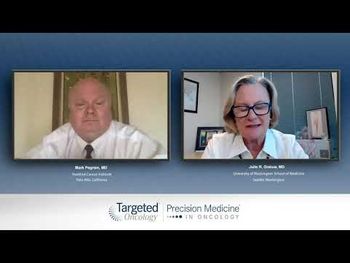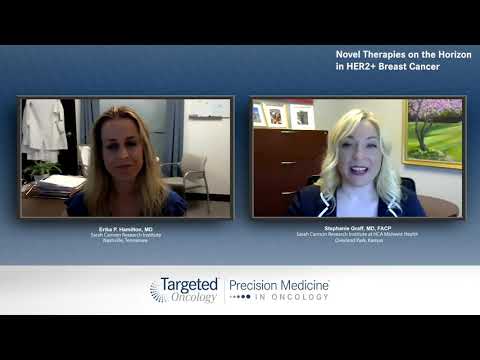
BREAST CANCER
Latest News

Latest Videos

More News








Experts from Sarah Cannon Research Institute talk about the expanding role of targeted treatment options in early HER2+ breast cancer.

The FDA has accepted a supplemental Biologics License Application submitted for neoadjuvant pembrolizumab combined with chemotherapy and adjuvant pembrolizumab monotherapy for the treatment of patients with high-risk early-stage triple-negative breast cancer.

The FDA accepted a supplemental Biologics License Application for and granted Priority Review to pembrolizumab in combination with chemotherapy, which is intended for the treatment of patients with locally recurrent unresectable or metastatic triple-negative breast cancer whose tumors express PD-L1.
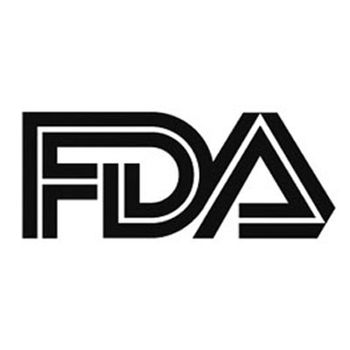
The FDA has approved the Ventana HER2 Dual ISH DNA Probe Cocktail assay as a companion diagnostic for trastuzumab and for the detection of the HER2 biomarker in patients with breast cancer.

“In both subgroups, the benefit of veliparib was durable, with an increased probability of remaining progression free at 2 and 3 years compared with placebo,”

Terry P. Mamounas, MD, MPH, discusses the use of extended adjuvant therapy for patients with breast cancer and how the landscape is evolving.

A pathogenic germline mutation rate of about 5% has been identified in women who had a family history of breast or ovarian cancer but no personal history of either disease.

Once the impact of COVID-19 begins to minimize and activities settle into a “new normal,” efforts to expand precision medicine across many diseases will resume.
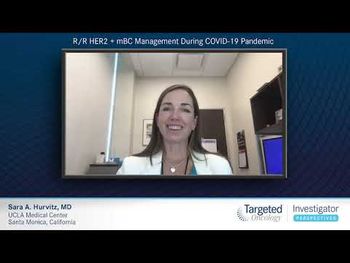
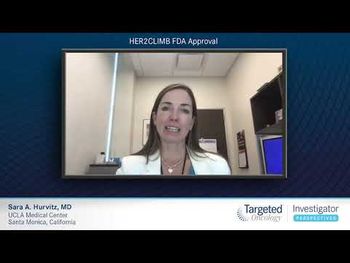
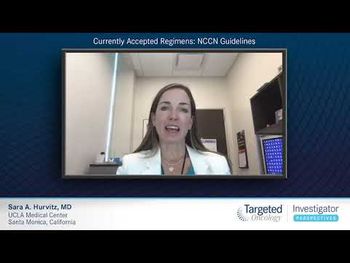
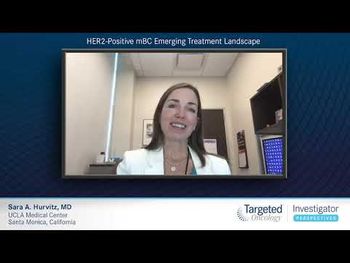

A key opinion leader discusses how the role tucatinib is evolving in the management of HER2-positive metastatic breast cancer.

21-Gene Genomic Testing Assay May Predict Benefit in Select Young Women With ER+ Early Breast Cancer
In an interview with Targeted Oncology, Ann H. Partridge, MD, MPH, discussed the response to neoadjuvant chemotherapy among patients with ER-positive, HER2-negative breast cancer and how the 21-gene Breast Recurrence Score aids in the prediction of response for this treatment.

Based on phase 3 findings, F-627 appears at least as efficacious and safe as pegfilgrastim, which is the current standard of care, demonstrating strong and durable benefit in patients with breast cancer.

In an interview with Targeted Oncology, Julie R. Gralow, MD, discussed the findings from the KAITLIN study of T-DM1 in early-stage breast cancer.

“By retrospectively analyzing data from the adjuvant BIG 2-98 trial, we demonstrated that overweight and obese patients treated with a docetaxel-based chemotherapy regimen presented with a worse disease-free and overall survival compared with average weight patients treated with the same chemotherapy regimen."
